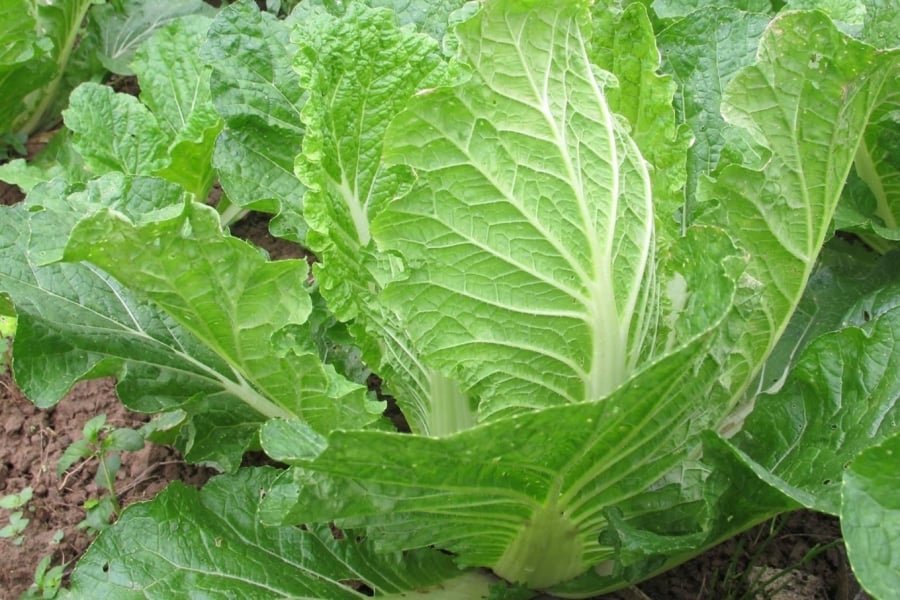The liver is the body’s natural “filter,” detoxifying and keeping our systems running smoothly. To perform this function optimally, the liver needs nourishment from nutrient-rich and healthy foods.
Every day, the liver processes most of what enters our body, distinguishing what needs to be eliminated and what should be retained and returned to the bloodstream. Therefore, caring for the liver through a sensible and scientific diet will bring much longer-lasting and sustainable results than short-term “detox” or rapid cleansing methods.
Foods to Eat for a Healthy Liver
For the liver to function effectively, it is essential to nourish the entire body with nutrient-dense foods while limiting nutritionally poor or toxic choices.
Here are some representative foods that can help boost liver function:
1. Blueberries and Berries
Blueberries are rich in anthocyanins, powerful antioxidants that give this berry its distinctive red color. A study of 110 people with non-alcoholic fatty liver disease found that blueberry capsule supplementation for six months improved blood fat levels, insulin resistance, and liver function.
Additionally, deeply colored berries like blueberries are rich in polyphenols, antioxidants that may help protect the liver from damage. However, most current studies are still in the animal testing phase, and more clinical evidence in humans is needed.
2. Coffee
If you’re a coffee lover, you’ll be glad to know that this beverage can promote a healthier liver. Some studies suggest that coffee may reduce the risk of severe liver damage, especially in people with chronic liver disease.

3. Green Tea
Green tea is also a wise choice for liver health. A 2020 review of studies indicated that green tea could lower liver enzymes in individuals with non-alcoholic fatty liver disease. However, overconsumption in healthy individuals may have the opposite effect, increasing liver enzymes. Other studies also link green tea consumption to a reduced risk of liver cancer.
4. Cruciferous Vegetables
Vegetables like broccoli, kale, cauliflower, and Brussels sprouts are packed with fiber and beneficial plant compounds that support the liver. They can aid the body’s natural detoxification processes and enhance liver function, although more research is needed for conclusive evidence.

Supporting Liver Health with Diet
A balanced, nutrient-rich diet can enhance liver efficiency and lower the risk of liver disease. Here are some standout foods to incorporate into your daily meals:
1. Nuts
Nuts like almonds, walnuts, and cashews are packed with protein, fiber, vitamin E, calcium, and beneficial unsaturated fats. A Chinese study found that higher nut consumption was associated with a lower risk of non-alcoholic fatty liver disease, especially in men.
2. Fatty Fish
Fish like salmon, sardines, herring, and tuna are rich in omega-3 fatty acids, which reduce inflammation and enhance liver function. Research shows that omega-3 can decrease fat accumulation in the liver and improve blood fat levels in individuals with fatty liver disease.
3. Grapefruit
Grapefruits are rich in antioxidants like naringenin and naringin, which reduce inflammation and protect liver cells. Some studies suggest that these compounds also help reduce liver fibrosis and improve liver function in individuals with alcohol-related liver damage.
4. Olive Oil
The monounsaturated fats in olive oil can reduce inflammation, curb oxidative stress, and improve insulin sensitivity, all of which benefit the liver. The Mediterranean diet, rich in olive oil, has been shown to reduce fat accumulation in the liver, especially in older adults.
5. Garlic
Garlic supports the liver’s natural detoxification processes. In a 2020 study, individuals with non-alcoholic fatty liver disease who consumed 800mg of garlic powder daily for 15 weeks experienced significant liver improvements. Additionally, regular raw garlic consumption has been linked to a lower risk of liver cancer.
Foods to Limit for Liver Health
Caring for your liver involves not just eating the right foods but also avoiding harmful ones. Certain foods can increase the risk of fatty liver disease and liver damage:
- Processed meats (sausages, bacon, etc.)
- Red meat (beef, pork)
- Sugary drinks (sodas, sweetened beverages)
- Fast food, often high in unhealthy fats, saturated fat, and trans fat
Alcohol – A Serious Threat to Liver Health
Excessive alcohol consumption disrupts the gut microbiome, causes nutritional deficiencies, and weakens the immune system, severely impacting the liver. Alcohol abuse can lead to liver fibrosis, liver cancer, and even death.
To maintain a healthy liver and avoid unwanted complications, limiting alcohol intake is of utmost importance.






























